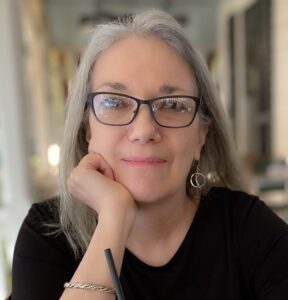From the Editor
 Severance was inspired by the revelation of family secrets and a series of disconnects from genetic parents. My mother left when I was an infant, so I never had an opportunity to know her. Though I wasn’t adopted, the trauma of many adoptees — their yearning for and desire to find their unknown parents, their overriding need to know where they come from — resonated deeply. Though I couldn’t know the truth of their experiences, I understood well how it felt for a parent to be a complete mystery.
Severance was inspired by the revelation of family secrets and a series of disconnects from genetic parents. My mother left when I was an infant, so I never had an opportunity to know her. Though I wasn’t adopted, the trauma of many adoptees — their yearning for and desire to find their unknown parents, their overriding need to know where they come from — resonated deeply. Though I couldn’t know the truth of their experiences, I understood well how it felt for a parent to be a complete mystery.
My older brother was adopted. He not only had been abandoned by our mother, but he also didn’t know who his biological father was. We were raised, and he was adopted, by the man I believed to be my father. I couldn’t imagine how my brother felt; his was my yearning magnified and multiplied times two. And then I didn’t have to imagine it. In 2015, I discovered through a DNA test that the wonderful man who raised us wasn’t, in fact, my biological father. Suddenly I knew how it felt to be bereft of both genetic parents. And on the heels of that bombshell came another. A DNA test delivered a similar surprise for one of the six siblings I’d previously discovered and with whom I’m happily reunited. (You can learn more about this story in essays in the Huffington Post and Visible Magazine, an article in The Beacon, and on these podcasts: Everything’s Relative with Eve Sturges, Sex, Lies & The Truth and CutOffGenes Podcast.)
Perhaps because I work as a journalist, I’m driven to get at the truth. (Or perhaps because I’m driven to get at the truth, I became a journalist.) In any case, I was determined to try to find fathers — my brother’s, my sister’s, and my own. To learn more about how to use DNA to find family, I joined the DNA Detectives, a remarkable Facebook group in which I not only received help from members and administrators, but also learned that my story was far from unique. As I experienced my own struggles and sense of overwhelm, I read each day about the heartbreaks and triumphs of others in similar positions, about the joyful reunions and the devastating rejections. I learned that family seekers — whether they were adopted, abandoned, donor-conceived, or those who’d discovered misattributed parentage — have a great deal in common. In addition to their unique concerns, they experience many of the same emotions, may have suffered similar traumas, and may have been deprived of the same fundamental rights. Their requirements for support, comfort, and information are nearly identical, and vastly unfulfilled.
Because I’ve been a writer and editor for many years and have founded and managed several niche magazines, creating a magazine seemed to be one way I might be able to contribute — to increase understanding and provide information and resources. Severance is for all the genetic identity seekers. Please join me in helping to bridge the gap in knowledge and awareness.
— B.K. Jackson